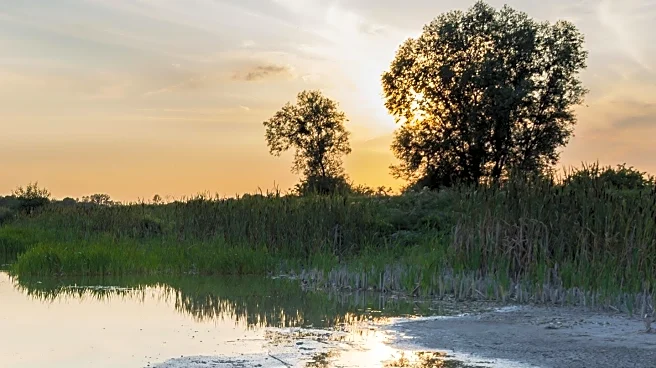What is the story about?
What's Happening?
A recent study has identified a significant decline in the use of nature-related words such as 'river,' 'moss,' and 'blossom' in English-language books over the past 200 years. This trend is not merely a linguistic shift but reflects a broader disconnection from the natural environment. Experts suggest that this loss of connection is contributing to the environmental crises currently faced globally. The study's findings were discussed by Scott Tong and Kate Yoder, a senior staff writer at Grist, emphasizing the importance of reconnecting with nature to address these challenges.
Why It's Important?
The decline in nature-related language signifies a growing detachment from the environment, which could have profound implications for public awareness and policy-making regarding environmental issues. As language shapes perception, the reduced presence of nature in everyday discourse may lead to diminished concern and action towards environmental conservation. This disconnect could hinder efforts to combat climate change and preserve biodiversity, affecting industries reliant on natural resources and influencing societal attitudes towards sustainability.
What's Next?
Efforts to reintegrate nature into public consciousness could involve educational initiatives, media campaigns, and policy changes aimed at fostering a deeper appreciation for the environment. Stakeholders such as environmental organizations, educators, and policymakers may need to collaborate to reverse this trend and promote a more nature-centric dialogue. This could lead to increased support for environmental protection measures and a shift in cultural values towards sustainability.
Beyond the Headlines
The decline in nature-related language also raises ethical and cultural questions about humanity's relationship with the environment. It suggests a potential shift in cultural priorities away from nature, which could have long-term implications for how societies value and interact with the natural world. Addressing this issue may require a reevaluation of cultural narratives and educational systems to ensure that future generations maintain a strong connection to the environment.














